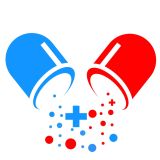In this article:
What is a Pharmacy Degree?
A pharmacy degree prepares students to become pharmacists, who are healthcare professionals specializing in the safe and effective use of medications. This program covers a wide range of topics, including pharmacology (the study of drugs), medicinal chemistry, and patient care. Students learn how different medications work, how to prescribe them, and how to advise patients on their proper use and potential side effects.
In addition to classroom learning, pharmacy degree programs typically include practical training through internships or clinical rotations. During these experiences, students work in pharmacies, hospitals, or other healthcare settings, where they apply their knowledge and develop important skills in patient interaction and medication management. This hands-on training helps students understand the real-world applications of their education and prepares them for their future careers.
Program Options
The following educational paths prepare students for careers in various areas within the pharmaceutical field, including clinical practice, research, and pharmaceutical industry roles:
- Bachelor’s Degree in Pharmacy: Some institutions offer a Bachelor’s Degree in Pharmacy, which is usually a prerequisite for entering a Pharm.D. program. This degree provides foundational knowledge in pharmaceutical sciences and prepares students for advanced study.
- Doctor of Pharmacy (Pharm.D.): A professional doctorate that typically takes four years to complete after earning a bachelor’s degree. The Pharm.D. program includes comprehensive coursework in pharmacology, medicinal chemistry, and patient care, along with practical training through internships or clinical rotations.
- Master’s Degree in Pharmaceutical Sciences: While not required to practice as a pharmacist, this degree focuses on advanced research and development of medications. It can be useful for those interested in pharmaceutical research, drug development, or regulatory affairs.
- PhD in Pharmaceutical Sciences: This program is for those who wish to engage in research and teaching at the university level or work in high-level research positions within the pharmaceutical industry. It involves extensive research and typically takes several years to complete.
Skills You’ll Learn
A pharmacy degree equips students with a range of essential skills necessary for their roles as pharmacists. Here are some key skills learned:
- Pharmacological Knowledge: Students gain a deep understanding of how medications work, including their effects, side effects, interactions, and appropriate dosages. This knowledge is critical for providing safe and effective patient care.
- Patient Communication: Training includes developing strong communication skills to interact with patients effectively. Pharmacists learn to explain complex medical information in an understandable way, ensuring patients comprehend their medications and treatment plans.
- Critical Thinking and Problem-Solving: Pharmacists often face complex situations that require quick decision-making. Students learn to analyze patient information and medication regimens to identify potential issues and recommend solutions, ensuring optimal patient outcomes.
- Attention to Detail: Accuracy is crucial in pharmacy practice. Students develop strong attention to detail skills to ensure precise dispensing of medications, avoid errors, and maintain proper patient records.
- Ethical and Legal Knowledge: Students learn the ethical and legal standards governing pharmacy practice. This knowledge is essential for ensuring compliance with regulations and maintaining the highest standards of patient care.
- Interpersonal Skills: Working collaboratively with healthcare teams is a significant aspect of pharmacy. Students cultivate interpersonal skills to build effective relationships with doctors, nurses, and other healthcare professionals to provide coordinated patient care.
What Can You Do with a Pharmacy Degree?
With a pharmacy degree, graduates have a variety of career options available in the healthcare field. Here are some of the main roles:
- Pharmacist: The most common career path, pharmacists work in retail pharmacies, hospitals, or clinics. They dispense medications, provide patient counseling on proper medication use, and collaborate with healthcare professionals to ensure safe and effective treatments.
- Pharmaceutical Sales Representative: Graduates can work in the pharmaceutical industry, promoting medications and medical products to healthcare providers. They use their knowledge of pharmacology to educate doctors and pharmacists about new treatments and how they can benefit patients.
- Regulatory Affairs Manager: These professionals ensure that pharmaceutical companies comply with regulations set by health authorities. They work on the approval process for new medications, ensuring that they meet safety and efficacy standards before reaching the market.
- Toxicologist: Some pharmacists may specialize in toxicology, studying the effects of chemicals and drugs on living organisms. They assess risks associated with exposure to harmful substances and provide expert opinions in legal or health-related cases.
- Researcher: Some graduates choose to pursue careers in research and development, working on the discovery and testing of new drugs. This role often involves conducting clinical trials, analyzing data, and collaborating with scientists and healthcare professionals.

